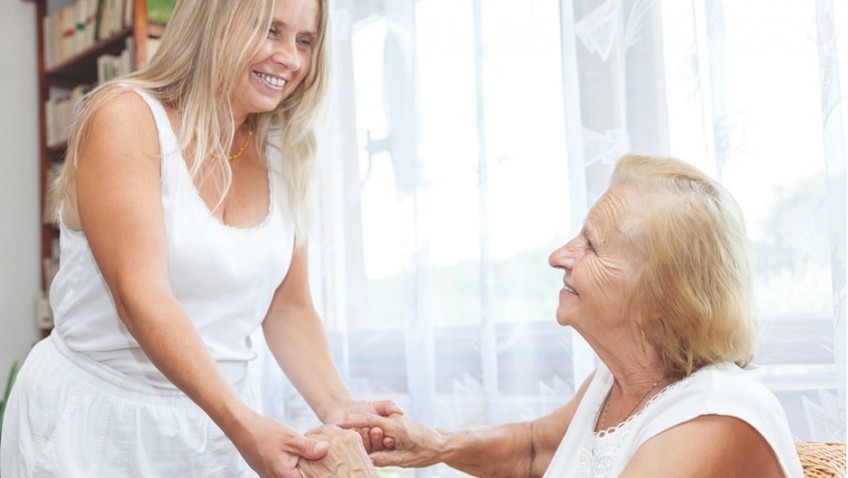“You yourself, as much as anybody in the entire universe, deserve your love and affection”
Buddha
Many people say to me, I am so tired and busy because I am caring for my partner* I don’t have time for myself. Here, I can show you some quick ways to look after your needs too.
I don’t need to tell you about the difficulties and challenges you experience when caring for your loved one. Do not ignore the emotional, physical and social upheaval that you are experiencing. Relationships change due to the nature of dementia and the aim of this column is to help support you in this. I cannot stress the importance of caring for yourself in order for you to be able to care. If you become stressed, start to struggle and feel isolated, you won’t be able to maintain this. There is a chance that you are not getting your needs met and at some point you may feel resentful about this and guilty for having these feelings. So here are a few pointers, some have already been discussed in previous columns but it’s good to repeat.
Firstly, slow down, stand back and re connect with who you are, realise your amazing self. Make sure you speak with others and don’t be too proud or embarrassed to ask for help, engage other people in your life for help and support. Often friends and other family members start to move away. Usually this is because they don’t know what to do, don’t know what to say and find it difficult to cope. Get them to read these columns, read your partner’s living history. Try and create a rota of friends who could “pop” in for just half an hour on a specific day or if they could go for a walk with your loved where possible. Involve them in reminiscence practices such as picnics, going through photographs and props around the home. By giving yourself half an hour maybe in the morning and possibly the afternoon you will be able to practice self-care and be in a much better position to care. Little and often. This time must be spent in caring for yourself. The household chores will have to wait, you will have more energy to do them when you have recharged your batteries. Speak to your doctor and ask what help is available, contact local support groups, they may be able to offer a befriending service or some day care activities.
Relaxation 1
Learn to Be in the moment sit quietly for 5 to 10 minutes and think of a word, prayer or mantra you can focus on. Let the word mean how you want to feel, so, for instance you may quietly repeat to yourself words such as Calm, Peace, Bliss, Breathe, Love. You may wish to set the alarm so that you do sit for the full time and try and create a special space in the home for you to do this. Try and imagine a golden light around yourself whilst doing this. If your partner won’t leave your side, repeat the words gently and out loud, they may feel the vibration and sound which may have a calming effect with them. It may take a little time but keep trying.
When you have a shower or bath (where possible) try and use some calming smells such as lavender. Practice your word or mantra and try and love your body and reconnect with yourself. Imagine golden light showering down on you. This practice has been known to help people healing from cancer. At any time, you feel overwhelmed or stressed, take a deep breath and repeat your chosen word and imagine the light until the feeling fades. To remind yourself, write down your word on a post it note and stick it in key places around the house such as in the bathroom, on the fridge door, by the front door, keep reminders everywhere.
Often as a carer, we can condition ourselves over time to feeling stressed, we now need to re-condition ourselves to feeling calm. The energies in the home can change from tension to calmness with this approach when practised regularly. If you feel guilty for your thoughts and feelings sometimes, embrace the guilt, then let it go, visualise it floating away on a cloud. Guilt can be very damaging and does not serve you, let it go. Humour helps, if you can put some comedy on the television or radio, a good laugh can really lift your spirits.
Try and rest when your partner does, even ten minutes of sitting still, closing your eyes, taking slow deep breaths and repeating your word can help recharge the batteries. Make sure that you remember to eat, again, little and often. When we miss meals we can become irritable and find it harder to cope. Remind yourself of how remarkable you are. Learn to reflect on the day. It is helpful to reflect with a view to what went well and what didn’t. Think back and, instead of engaging with guilt, think of how you could change how you approached certain aspects of the day and use my previous columns as a guide. Don’t be hard on yourself it can take time and many attempts to make changes. Write a diary if you can, getting your thoughts and feelings out onto paper can help you feel better. Then if you are able, listen to music or find a good book or film to enjoy.
Relaxation 2
For five minutes in the morning and five minutes at night, send yourself loving kindness messages. Sit in a quiet place, where you will not be disturbed, turn off all distractions. Close your eyes and say to yourself:
- May I feel happy
- May I feel joyful
- May I feel blessed
- May I feel well
- May I feel love
- May I feel valued
Try and feel what you are saying and notice how you feel afterwards. Again, if your partner is at your side repeat out loud, you may wish to change it to
- May we feel happy
- May we feel joyful
- May we feel blessed
- May we feel well
- May we feel love
- May we feel valued
*I use the term partner as a care partner, this may be your spouse, sister, brother, mother, father and in some cases daughter or son.
By Jane Mullins
Jane Mullins
Jane Mullins (RGN, Bn, PGcASR) is a dementia nurse consultant. She has worked on the Memory Teams of Bath and Cardiff, managed a Nursing Home and cared for older people in many hospital settings. Her PhD; A Suitcase Full of Memories explores holiday reminiscence activities for people with dementia and their partners.
She is the creator of DUETcare, Dignity, Understanding and Empathy Training, specialising in training in Dementia and Care of the Older Person. She is involved in a number of creative projects including playfulness and the use of music and playlists for people living with dementia and their partners and families.
This column is here to help you understand what is happening and how the dementia may affect your loved one and offers tips and suggestions to help you. This column is not intended to replace your GP or Specialist Doctor, it is to give a guide to explain what may be happening to your loved one living with dementia and how you may be able to help through adopting interesting and helpful approaches.
Dementia affects people individually and different stages will come with different issues, therefore, the advice here is general and I would always recommend speaking with your doctor.






